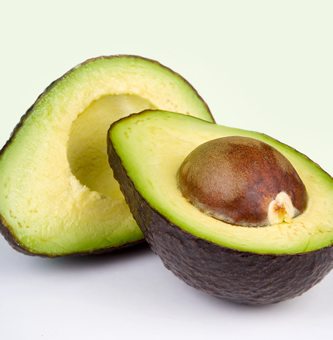Many people have high cholesterol and are either making dietary choices or taking medications to achieve proper LDL and HDL levels. Simply put, the LDL (low density lipoprotein) is considered to be the "bad" cholesterol that builds up in your the arteries and causes heart disease. The HDL (high density lipoprotein) is the "good" cholesterol which eliminates the bad cholesterol from building up in your arteries. When your HDL level is above 60 mg/dl, your risk of heart disease or heart attack decreases.
There are several anti-inflammatory foods which increase HDL levels. These foods are easy to include in your everyday diet.
Avocado - great on salads, sandwichs and as a dip. Tip: avocados are high in calories, so portion control is key. Add a little squeeze of lemon or lime juice to prevent darkening.

Niacin rich foods or supplements - are believed to block cholesterol production in the body. Foods high in niacin include crimini mushrooms, chicken breast, halibut, tomato, romaine lettuce and enriched breads and cereals. Niacin supplements may cause side effects like flushing, itching or headaches. Tip: Slow release tablets may minimize any side effects.








There are several anti-inflammatory foods which increase HDL levels. These foods are easy to include in your everyday diet.
Avocado - great on salads, sandwichs and as a dip. Tip: avocados are high in calories, so portion control is key. Add a little squeeze of lemon or lime juice to prevent darkening.

Niacin rich foods or supplements - are believed to block cholesterol production in the body. Foods high in niacin include crimini mushrooms, chicken breast, halibut, tomato, romaine lettuce and enriched breads and cereals. Niacin supplements may cause side effects like flushing, itching or headaches. Tip: Slow release tablets may minimize any side effects.

Legumes - are excellent sources of HDL friendly soluble fiber. Tip: Indian spices (cumin, nutmeg, ginger, turmeric, paprika) are a tasty addition to lentils. These seasonings have been found to have anti-inflammatory properties.

Salmon - and other omega 3 rich fish like halibut, lake trout, tuna, mackerel and herring are heart healthy fats which should be eaten at least twice a week. Tip: By adding a chopped almond crust to the fish, you increase the omega 3 fats even more.


Olive Oil - is high in unsaturated fats and can help elevate your HDL levels. Tip: Oil is high in fats and calories, so practice portion control.

Fiber - includes whole grains. Foods high in soluble fiber are especially helpful to raise HDL and lower LDL. Oatmeal is an excellent source of soluble fiber as is rice, whole wheat, quinoa and barley. Tip: Choose a whole grain to eat daily.


Nuts - are a good source of heart healthy fats. Almonds, walnuts, hazelnuts, and pecans can be added to salads, yogurt, cereals, rice or pasta dishes. Tip: Although nuts are more than half fat, they are high in protein, fiber, vitamins and minerals. Limit your portion to one handful.

Cholesterol levels are also affected by blood pressure and blood glucose. If these two factors are high, your cholesterol numbers may be off as well. These 3 factors can increase your risk for type 2 diabetes and heart disease. Choosing to add the foods listed above to your daily diet will help lower your health risks to live a longer, healthier life.
Thanks for stopping by today for a visit. Hope you found this an interesting and helpful topic that you can integrate into your life.
Great post full of valuable information!
ReplyDeletePam.
Thanks Pam. I appreciate your blog and the work you do to provide low carb recipes. Keep up the great work!
ReplyDeleteThis book has helped me to make food changes for me and my family. My husband will always be a meat eater! but I'm able to make foods for all of us without a lot of extra effort. This book has done so much for me, and I'm grateful to the author for providing information that has helped me to create a huge positive change to my health and life. If you have been through anything similar to what I've been through, this book is definitely a great resource.
ReplyDelete